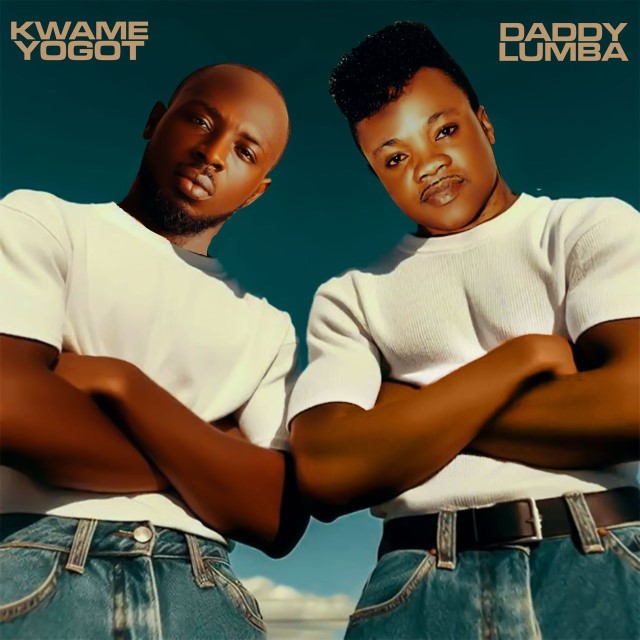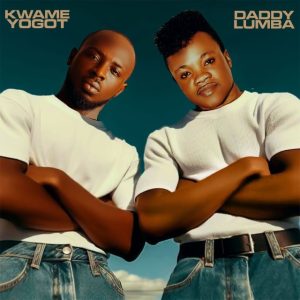

Kwame yogot – daddy lumba
Kwame Yogot – Daddy Lumba
Kwame Yogot honors a legendary legacy with emotional depth in “Daddy Lumba,” a heartfelt tribute to the late Ghanaian music icon that resonates across generations.
Kwame Yogot’s latest release, “Daddy Lumba,” is more than a song—it’s a deeply personal tribute to one of Ghana’s most beloved and influential musical figures, the late Charles Kwadwo Fosu, popularly known as Daddy Lumba. Known for blending humor with lyrical storytelling, Yogot shifts into a more solemn and reflective mode on this track, paying homage to a man whose music shaped the identity of highlife and influenced countless Ghanaian artists. In “Daddy Lumba,” Kwame Yogot shows his emotional range and respect for a legend whose voice defined an era.
The song’s theme revolves around remembrance, gratitude, and the emotional vacuum left behind after the passing of a cultural icon. Yogot reminisces about how Daddy Lumba’s music was a soundtrack to his youth, his struggles, and even his successes. He captures the dual emotions of mourning and celebration—grieving the loss of a giant while acknowledging the everlasting imprint of his artistry. It’s not just about fame or musical genius; it’s about the emotional bond that Ghanaians feel with Daddy Lumba’s timeless melodies.
Musically, the song leans into highlife and Afro-fusion, carefully incorporating elements of Daddy Lumba’s signature sound—smooth guitar riffs, melodic backing vocals, and rich horn sections—without feeling like an imitation. The production, handled with finesse, carries a nostalgic warmth. It invokes the feel of a live band playing at a traditional Ghanaian gathering, blending solemnity with celebration. This sonic approach makes the song feel like a homecoming and a farewell all at once.
Kwame Yogot’s vocal delivery is gentle and heartfelt. Known for his witty lyrical style and upbeat flow, he tones things down in “Daddy Lumba” to honor the gravity of the moment. His voice carries reverence and sorrow, but also pride—pride in being able to acknowledge a forefather of Ghanaian music. He sings and raps with a reflective cadence, taking time to let every line land. His sincerity is undeniable, and that emotional honesty gives the track its power.
Lyrically, “Daddy Lumba” avoids excessive sentimentality and instead focuses on real memories and specific cultural impact. Yogot name-drops classic Lumba songs and moments from his legacy, from “Theresa” to “Aben Wo Ha,” reminding listeners of the depth and breadth of Daddy Lumba’s influence. He expresses how these songs taught him about love, pain, joy, and perseverance. The lyrics are personal but universal, capturing the sentiment of millions of fans across the country and beyond.
The emotional core of the track lies in the chorus, where Yogot addresses Daddy Lumba almost like a father figure, promising to carry on the lessons learned through his music. It’s both an ode and a vow—a promise that his memory will be kept alive through the next generation of artists. Yogot’s ability to make this feel genuine without sounding forced is a testament to his growth and maturity as a musician.
Fans and fellow musicians have reacted strongly to the tribute. Social media has been filled with clips of the song, emotional posts, and fans recalling their own memories tied to Daddy Lumba’s music. For many, this song has offered a kind of collective mourning, allowing the public to come together and reflect on what the legend meant to them personally and culturally. It’s more than just a musical release—it’s become a moment of national reflection.
For Kwame Yogot, “Daddy Lumba” marks a significant milestone in his artistic journey. While he’s long been known for his humorous and energetic delivery, this song showcases his ability to step into more emotional and reflective territory. It demonstrates that Yogot is not only here for entertainment but also has the depth to document legacy, culture, and emotion through music. It’s a tribute that doesn’t just say “thank you”—it invites everyone else to say it too.
“Daddy Lumba” is a reminder that music is eternal, and while legends may pass, their spirit lives on through melodies, memories, and the voices of those they inspired. In crafting this tribute, Kwame Yogot ensures that Daddy Lumba’s legacy is not only remembered but revered.
